Search Results
Showing results 1 to 20 of 40

Make a Dinosaur Model
Source Institutions
In this activity, learners explore dinosaur skeletons, anatomy, and locomotion. Learners compare and contrast dinosaur skeletons and drawings.
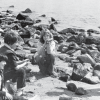
Beachcombing
Source Institutions
In this outdoor activity, learners become beachcombers as they walk on a sandy beach in search of evidence of life.
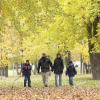
Scavenger Hunt
Source Institutions
An outdoor scavenger hunt helps learners consider the theme of "What Is Life?" Learners explore what living organisms are, including how organisms meet basic needs of food, shelter and water to surviv
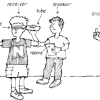
Tracking Otters
Source Institutions
This activity (on pages 38-43) has learners simulate the way scientists track and map the movement of otters in the wild using radio trackers.
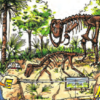
Dinosaur Interaction
Source Institutions
In this activity, learners explore why animals, specifically dinosaurs, live in families.
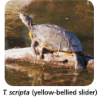
What's in the Water?: Biotic and Abiotic Elements in Aquatic Ecosystems
Source Institutions
In this investigation learners explore the differences between, and interdependence of, living and nonliving elements in a water ecosystem.
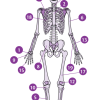
Inner Strength
Source Institutions
In this activity about endoskeletons (page 8 of PDF), learners observe, compare and contrast different kinds of chicken bones, and relate their chicken bone observations to human bones.

Walk On Water Bugs
Source Institutions
In this activity (on pages 29-35), learners examine water pollution and filtration.
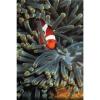
Underwater Hide and Seek
Source Institutions
In this activity, learners experience firsthand how marine animals' adaptive coloration camouflages them from prey.

What is an Animal Group?
Source Institutions
In this activity related to dinosaurs, learners explore why animals live in families. Learners discuss and identify animals living in families or groups from images and photos.
Create a Mangrove Tree
Source Institutions
In this group activity, learners will explore the characteristics, functions and uniqueness of the mangrove tree.
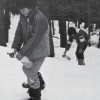
Scent Tracking
Source Institutions
In this wintertime outdoor activity, learners role play wolves tracking their prey by following scented trails.
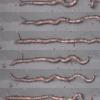
Observing Earthworm Locomotion
Source Institutions
In this activity, learners collect worms and then observe how they move.
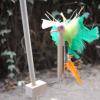
Woodpecker
Source Institutions
In this activity, learners construct a traditional handicraft toy that illustrates a motion commonly associated with violins and earthquakes.
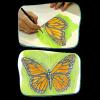
Draw a Monarch Butterfly: Scientific Illustration
Source Institutions
Ivy Rutzky, a scientific assistant at the American Museum of Natural History, introduces an activity where learners create a scientific illustration of a monarch butterfly.

The Old White Sheet Trick: Light and Insect Behavior
Source Institutions
In this outdoor, nighttime activity, learners gather around a brightly lit, white surface and study the behavior of nocturnal animals attracted to the light, particularly night fliers.
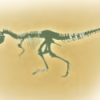
Digging Deeper!
Source Institutions
In this activity, learners explore dinosaur skeletons and anatomy. Learners make observations about a T. rex skeleton diagram and then measure the skeleton length and width.
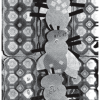
Bee Builders
Source Institutions
In this activity, learners make a model of a beehive using simple materials.
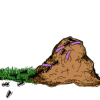
ANTacid: Indicator Paper on an Anthill
Source Institutions
In this activity, learners make acid/base indicator paper, place the indicator paper on an anthill, disturb a bunch of ants, and then observe what happens!

Lengths of Ladybugs
Source Institutions
In this math lesson, learners explore the concept of using units to measure length.
